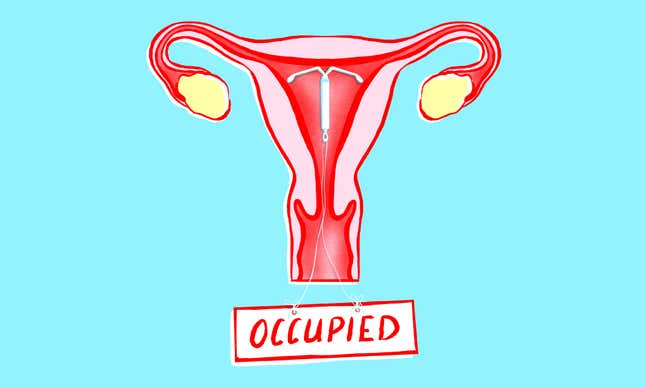Should We Be Mourning the Accidental Pregnancy?
Latest

Accidental pregnancies are often a terrible burden. For some women, however—myself included—they’re not entirely unwelcome, as it’s the only way babies are going to happen.
When you’re not sure if you want kids or not, a contraceptive like the IUD offers a level of certainty that might not match your own. Fate, chance—with a near-perfect birth control, these guys are no longer available to cut through our ambivalence. Yes, that sounds weird, and antithetical to most conversations about family planning. IUDs are good, and not having a kid until you’re 100% ready is ideal. Planned pregnancies are always better, because they come with a higher likelihood of a healthier pregnancy, with better prenatal care, financial planning, and of course, emotional preparedness.
The new IUDs (Mirena—plastic, hormones, or Paragard—copper, no hormones) and their 1 percent failure rate are a gift to women. You can change your mind and take them out whenever, sooner than the 3 to 10 years they can be kept in. It is great! But it hinges entirely on a level of sureness that many women simply don’t have. I asked a friend who recently got IUD’d whether she experienced any anxiety about the fact that it’s so definitive (fully biased by the fact that I hadn’t planned on procreating, then accidentally did and loved it).
“Nope!” she answered immediately. “It’s great; my only fear is that it will come loose.” But compare this answer with a piece at New York Magazine, where Molly Fischer contends that solid gold contraceptive like the IUD might just be “too good” for some people. Fischer dealt with some unexpected feelings of anxiety about the “cyborg status” inherent in flipping the switch of your fertility, and with it, a new, uneasy biological status quo she calls “not pregnant, not going to be.” She writes:
-

-

-

-

-

-

-

-

-

-

-

-

-

-

-

-

-

-

-

-

-

-

-

-

-

-

-

-

-

-

-

-

-

-

-

-

-

-

-

-








































